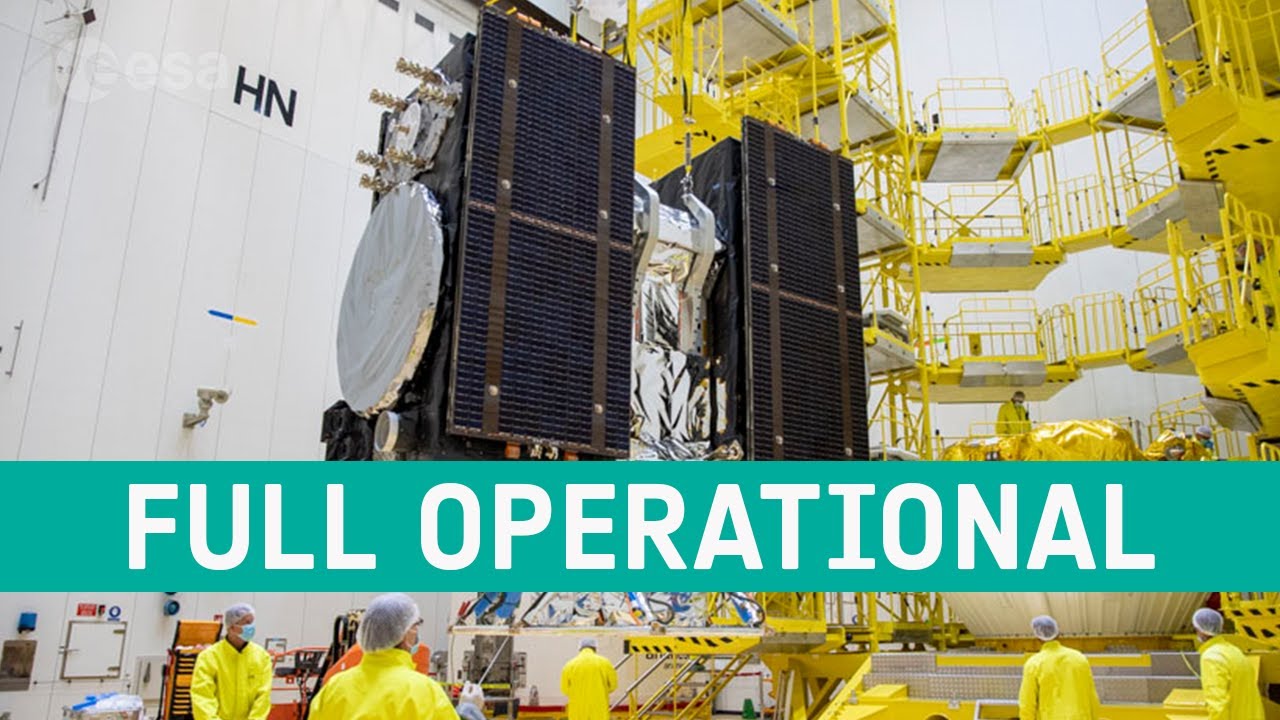An upcoming Soyuz launch from French Guiana will orbit the first two of the twelve “Batch 3” European Space Agency Galileo navigation satellites. This is the 11th launch in the ten-year build-out of Galileo, and Batch 3, when complete, will provide continuous, three-dimensional global coverage with on-orbit spares to replace any satellites that may fail.
Will I have to update the GPS receiver I have been using for the last quarter century?
No—any GPS receiver will continue to work for the foreseeable future because, due to the size of the installed base, future GPS satellites will maintain compatibility with existing receivers (although they may add new features that only work with newer receivers). None of the other global navigation satellite systems: Russian GLONASS, European Galileo, or Chinese Beidou interfere with GPS or one another. Modern navigation receivers and the GPS systems of most smartphones receive signals from GPS ,GLONASS, and Galileo, and use all satellites in view to improve accuracy and avoid interruptions in service due to obstacles blocking the view of parts of sky.
There are smartphone apps, for example GPS Test for Android:
that will show you which satellites your device is receiving.
Hmm! I am going to have to update my Sarcasm module. 
I never really understood why European countries found it necessary to invest Billions of Euros on a satellite navigation system which competed with the already freely-available US GPS system – apart from the usual European arrogance and the need to create jobs in their declining economy.
At one time, Galileo was going to charge for the service that was available at no cost from GPS; don’t know if that is still part of the plan. There was the issue of GPS deliberately being less accurate – but that mattered only to those who were planning to use satellite navigation for their missiles.
It is easy to understand why Russia and China have their own satellite navigation systems. It is less obvious that Galileo was a smart use of Europe’s limited funds.
The justification is that the U.S. has never formally committed, either in a public statement or via a treaty, to make GPS available, for free or otherwise, to other than the U.S. military. Further, GPS is known to have the ability to shut down civilian (non-encrypted) signals to parts of the globe while continuing the secure signals used by military receivers and those in weapon systems. European foreign offices and militaries have long memories, and recall how the U.S. put its foot down in the Suez crisis. The ability of the U.S. to render all European GPS-guided munitions and military positioning resources inoperable is judged unacceptable.
Finally, given the U.S. record in maintaining critical infrastructure (for example, serious gaps in coverage of weather satellites during hurricane and typhoon seasons due to failure to replace weather satellites intended to be retired ten years earlier), for something as important as global navigation, isn’t it a good idea to have a backup?
I’m not up to date with their current plans, but I believe that Galileo was going to provide GPS-level accuracy for free (and does presently), but offer the military-grade accuracy that GPS makes available only to the U.S. military available to commercial customers for a fee. There are number of applications which may be willing to pay to obtain that improved accuracy which is not available, at any price, from GPS. I can imagine surveyors in the U.S. paying for 10 centimetre accuracy positioning from Galileo.
That sounds like the Europeans! Rely on NATO (i.e., US) for defense, and rely on the US for logistical support, but insist on having their own satellite navigation system so they can act “independently”. No wonder a President Trump wanted to see Europeans actually live up to their NATO funding commitments.
It does seem like it might have been smarter for Europeans to offer to pay part of the costs of maintaining the GPS system, and use the money saved to … cut down the long waiting lists for the UK National Health Service, for example? I guess that foolish politicians are not a US monopoly.
I am aware of commercial users of military precision US GPS signals. IIRC, it was a bit better than 10cm.
